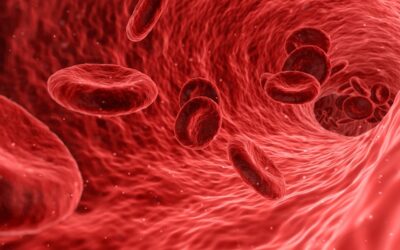In today’s busy modern society, getting enough sleep can be a challenge while trying to strike a work/life balance.
“A third of adults sleep less than recommended 7-9 hours per night. This means that a large part of the population ignores health authorities’ advice regarding healthy sleep duration,” explained Sanja Jelic, professor of medicine at Columbia University Medical Center, New York, and a lead author of a study published in Scientific Reports.
Described as a public health epidemic, insufficient sleep worsened by excessive electronic and smart phone use is detrimental to our physical and mental health. But how does even a mild reduction in sleep, something that so many of us experience, affect our cardiovascular health?
Jelic and colleagues now provide the first direct evidence that even mild sleep restriction in women causes dysfunction of the cells lining our blood vessels, even in healthy individuals. Mimicking real life, where people typically work longer hours or spend time socializing at the expense of sleep, the researchers of the current study wanted to explore the effects of mild sleep restriction.
Allocated into two groups, a total of 35 healthy women experienced either adequate sleep (7-9 hours) or 1.5 hours less sleep for 6 weeks. In what is known as a cross over design, the groups then swapped over, so each participant experienced both adequate sleep and mild sleep restriction.
Asked why only women were included in this study, Jelic explained in an email, “We wanted to study women first to see whether short sleep indeed causes cardiovascular consequences. This allowed for a smaller sample that provided sufficient statistical power to answer this question. The next step is to study both sexes.”
When the balance is out
We know we need sleep, but why? According to some experts, when we are asleep, our heart rate and blood pressure lower, meaning the heart does not have to work as hard. Sleep also promotes immune system function so we can better fight infections as well as essential metabolic functions.
Sleep is also believed to keep reactive oxygen species or oxidative stress levels at bay. In moderation, these byproducts of metabolism have roles in normal physiological function. However, excessive oxidative stress can damage cells and is implicated in many diseases including cardiovascular disease, cancer, neurodegenerative diseases, respiratory, and gastrointestinal diseases.
This study shows for the first time that even a minor loss in sleeping hours increases oxidative stress in the blood vessels and that antioxidants required to detoxify this stress do not respond, leading to impaired function of cells lining blood vessels. Whether reduced sleep is linked to plaque build up in arteries and affects other parts of the cardiovascular system is currently unknown and requires further study.
This reduction in antioxidant activity was pinpointed to reduced quantities of a particular protein, DCUN1D3 by the team.
According to the researchers, two key factors set this study apart from others. Firstly, it provides direct biological evidence of the dysfunction of cells lining blood vessels and secondly, the randomized experimental design helped ensure these effects are caused by sleep restriction and not by other contributing factors.
And sleep!
It is known that women suffer more sleep disturbances than men, which is believed to be in part due to biological and hormonal differences. Given the multifaceted responsibilities that women juggle between their professional careers, household, and family life, a substantial number of them could be at risk of experiencing these adverse consequences described in this study.
But are women more susceptible to the effects of sleep restriction than men? We don’t quite yet know, but taking this research forward, the team plan to include men in future studies to find this out.
“We hope that providing causal, biological evidence that short sleep worsens cardiovascular function may increase awareness of this problem and motivate people to try to obtain recommended amount of sleep,” says Jelic.
Making people aware of the importance of sleep is essential because sleep is what is often sacrificed in a busy society where demands on our time are ever increasing.
Reference: Shah, R, et al., Mild sleep restriction increases endothelial oxidative stress in female persons, Scientific Resports (2023). DOI: 10.1038/s41598-023-42758-y
Feature image credit: Annie Spratt on Unsplash

















